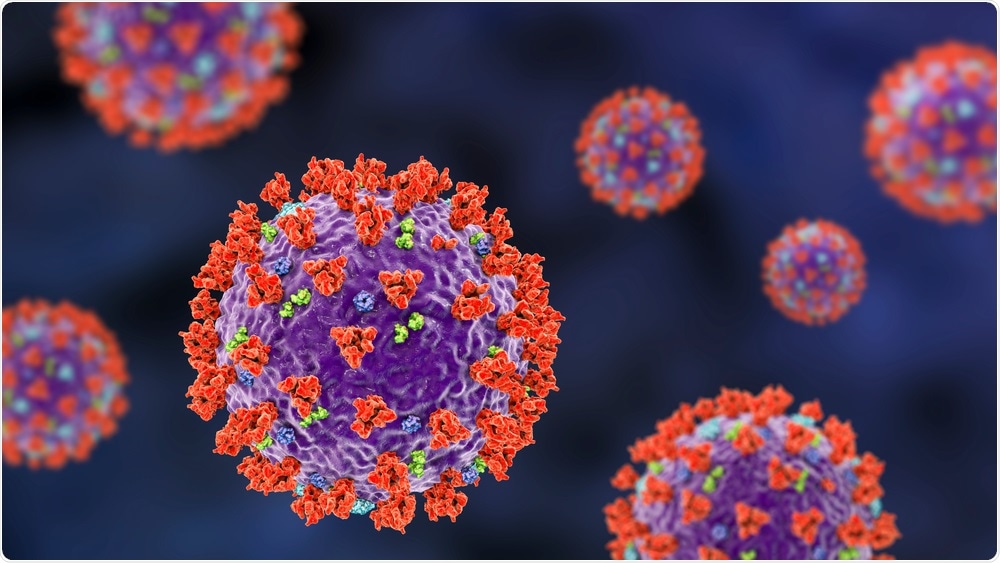New mutations of the SARS-CoV-2 virus have been emerging continuously, enabling a more potent spread of the virus and allowing it to evade antibodies. But it is not evident whether new strains can evade T-cell immunity—one of the body’s vital lines of defense against COVID-19.

SARS-CoV-2. Image Credit: Kateryna Kon/Shutterstock.com
Genetic factors, such as changes to the genes of the major histocompatibility complex (also known as HLA), largely govern the development of a T-cell immune response. Every HLA gene variant features a corresponding molecule that targets a particular set of peptides (protein) of a virus. Several such gene variations occur, and each person has an exclusive set of variations.
Each person exhibits different effectiveness of T-cell immunity development against COVID-19 strains. Based on the set of HLA molecules, the immune systems of some people can target and kill a mutated virus with the same efficacy as they would do to the regular virus. The response is less effective in the case of others.
The study was performed by a research team from HSE University’s Faculty of Biology and Biotechnology and the Institute of Bioorganic Chemistry of the Russian Academy of Sciences, which includes researchers Stepan Nersisyan, Anton Zhiyanov, Maxim Shkurnikov, and Alexander Tonevitsky.
The researchers evaluated the genetic characteristics of T-cell immunity development against 11 main SARS-CoV-2 variants by investigating the most common HLA gene variants. The team used its results to create the T-cell COVID-19 Atlas portal (T-CoV).
They used bioinformatics to evaluate the binding affinities of hundreds of HLA molecule variations and tens of thousands of virus peptides of the main SARS-CoV-2 variants (Alpha, Beta, Gamma, Delta, Epsilon, Zeta, Eta, Theta, Iota, Kappa, and Lambda).
The researchers found the HLA alleles that exhibited the most considerably changed set of identified virus peptides. They note that mutated variants may pose a higher threat to people with these alleles.
T-cell immunity works such that the variation in HLA molecules and T-cell receptors prevents viruses from evading the immune response. Our research did not find a single HLA genotype variant that is negatively affected by viral mutations in a significant way. This means that even in conditions of reduced antibody effectiveness, T-cell immunity continues to operate effectively.”
Aleksander Tonevitsky, Dean, Faculty of Biology and Biotechnology, HSE University
Source:
Journal reference:
Nersisyan, S., et al. (2021) T-CoV: a comprehensive portal of HLA-peptide interactions affected by SARS-CoV-2 mutations. Nucleic Acids Research. doi.org/10.1093/nar/gkab701.